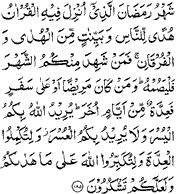Eid Ul Adha Khutbah In Arabic Text Pdf
- Posted in:Admin
- 25/04/18
- 67


• • • Eid al-Adha (: عيد الأضحى, ʿīd al-aḍḥā, 'Feast of the Sacrifice', ), also called the ' Sacrifice Feast', is the second of two celebrated worldwide each year, and considered the holier of the two. It honors the willingness of to sacrifice his son, as an act of obedience to 's command.
Before Abraham sacrificed his son, God provided a male goat to sacrifice instead. In commemoration of this, an animal is sacrificed and divided into three parts: one third of the share is given to the poor and needy; another third is given to relatives, friends and neighbors; and the remaining third is retained by the family. In the Islamic, Eid al-Adha falls on the 10th day of. In the international, the dates vary from year to year drifting approximately 11 days earlier each year. Eid al-Adha is the latter of the two Eid holidays, the former being. The word 'Eid' appears once in, the fifth sura of the Quran, with the meaning 'solemn festival'.
Eid ul adha khutbah in arabic text pdf. Exe TCP america s army system armyops. It doesn t require any investments into hardware and deployment.
Like Eid al-Fitr, Eid al-Adha begins with a of two followed by a sermon ( ). Eid al-Adha celebrations start after the descent of the Hujjaj, the pilgrims performing the, from, a hill east of. Eid sacrifice may take place until sunset on the 13th day of Dhu al-Hijjah. The days of Eid have been singled out in the as 'days of remembrance' and considered the holiest days in the. The takbir (days) of Tashriq are from the of the 29th of Dhul-Qadah up to the of the 13th of Dhu al-Hijjah (thirteen days and nights). Abraham, about to sacrifice his son According to, the valley of Mecca (in present-day ) was a dry, rocky, and uninhabited place. God instructed Abraham to bring (), his Arabian (Adnan) wife, and to from the land of.
As Abraham was preparing for his return journey back to Canaan, Hagar asked him, 'Did order you to leave us here? Or are you leaving us here to die? Class 7 Driver S License Restrictions there. ' Abraham did not even look back. He just nodded, afraid that he would be too sad and that he would disobey God. Hagar said, 'Then God will not waste us; you can go'. Though Abraham had left a large quantity of food and water with Hagar and Ishmael, the supplies quickly ran out, and within a few days the two began to feel the pangs of hunger and dehydration. Hagar ran up and down between two hills,, seven times, in her desperate quest for water.
Exhausted, she finally collapsed beside her baby Ishmael and prayed to God for deliverance. Miraculously, a spring of water gushed forth from the earth at the feet of baby Ishmael.
Other accounts have the Jibra'il, striking the earth and causing the spring to flow in abundance. With this secure water supply, known as the, they were not only able to provide for their own needs, but were also able to trade water with passing nomads for food and supplies. 1099 Pdf Fillable there.
Years later, Abraham was instructed by God to return from Canaan to build a place of worship adjacent to Hagar's well (the Zamzam Well). Abraham and Ishmael constructed a stone and mortar structure – known as the – which was to be the gathering place for all who wished to strengthen their faith in God.
As the years passed, Ishmael was blessed with (prophethood) and gave the nomads of the desert his message of submission to God. After many centuries, Mecca became a thriving desert city and a major center for trade, thanks to its reliable water source, the Zamzam Well. One of the main trials of Abraham's life was to face the command of God to sacrifice his dearest possession, his son. The son is not named in the Quran, but Muslims believe it to be, though it is mentioned as in the. Upon hearing this command, Abraham prepared to submit to. During this preparation, tempted Abraham and his family by trying to dissuade them from carrying out God's commandment, and Abraham drove Satan away by throwing pebbles at him.
In commemoration of their rejection of Satan, stones are thrown at symbolic pillars during the during Hajj rites. When Abraham attempted to cut his throat, he was astonished to see that his son was unharmed and instead, he found a ram which was slaughtered. Abraham had passed the test by his willingness to carry out God's command. This story is known as the in Judaism (Binding of Isaac) and originates in the, the first book of Moses (, Ch. The Quran refers to the as follows. 100 'O my Lord! Grant me a righteous (son)!'